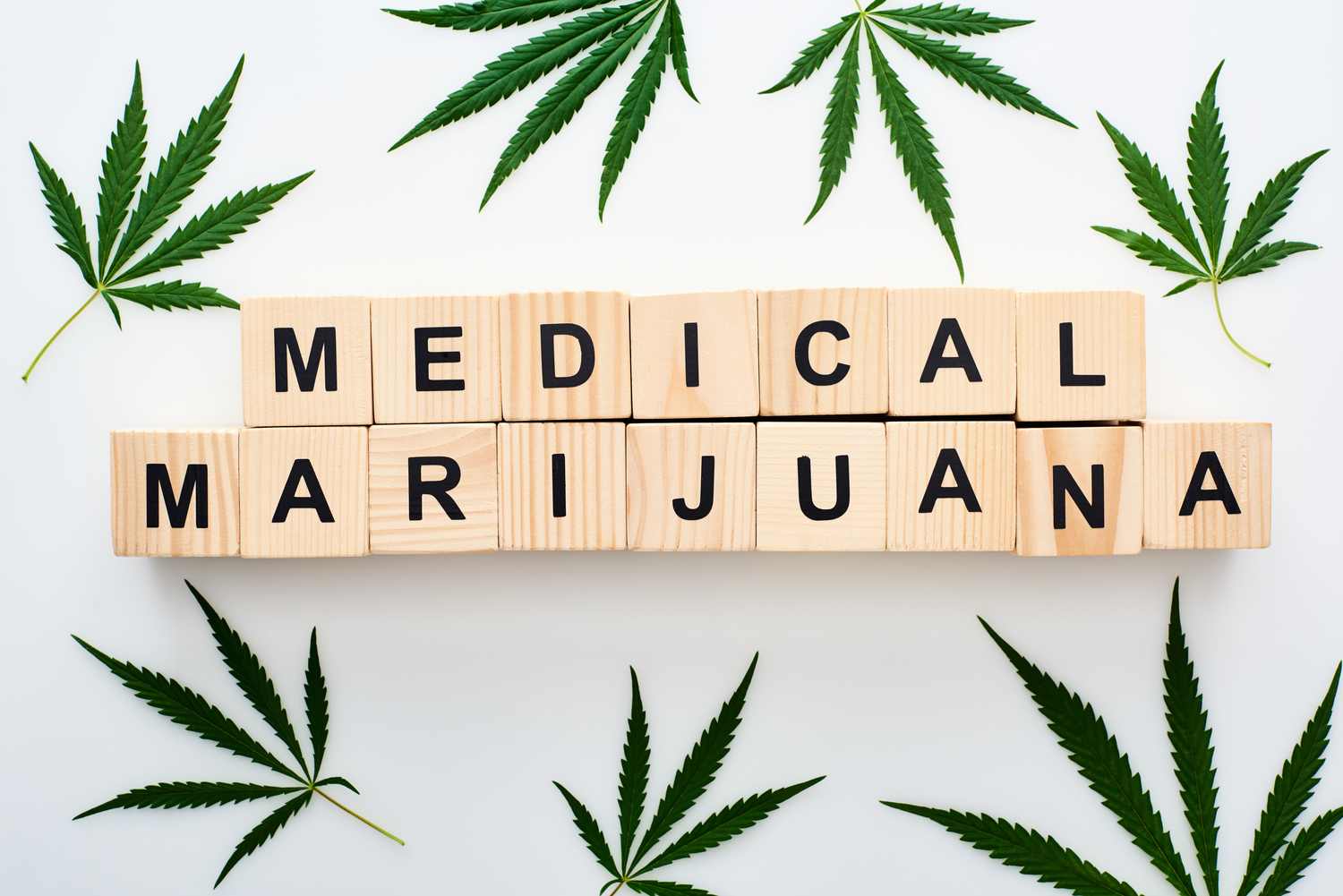Does Insurance Cover Medical Marijuana?
- John DiBella
- Published: April 2, 2024
- Fact-checked by Dr. Desiree Granados

Despite medical marijuana’s widespread legalization throughout the United States, patients often find themselves navigating a maze when it comes to insurance coverage for it.
In this article, we’ll shed light on the complex relationship between healthcare policies and cannabis, exploring the current landscape of insurance coverage for medical marijuana and the challenges patients may face when seeking it.
Is Medical Marijuana Covered By Insurance?
Medicare
Currently, Medicare does not cover medical marijuana, even when it’s prescribed by a healthcare provider. This restriction is largely due to the federal classification of marijuana as a Schedule I controlled substance in the U.S., which denotes it as having “no currently accepted medical use and a high potential for abuse.”
Consequently, federal programs like Medicare are unable to offer reimbursement for cannabis-based treatments despite individual states’ legalization of medical marijuana.
Medicaid
Medicaid does not currently cover medical marijuana. Despite medical marijuana being legal in many states, it remains classified as a Schedule I drug under federal law, which prohibits its prescription and federal funding for its purchase.
Private Insurance
Despite the increasing legalization and acceptance of medical marijuana in the United States, its coverage remains a contentious issue for private insurers. Medical marijuana has not been approved by the Food and Drug Administration (FDA), which has made it difficult for private insurers to designate it as a prescription medication eligible for coverage.
Discrepancies between federal and state cannabis laws complicate the matter even further for insurers. As a result, most private insurance plans do not cover medical marijuana, leaving patients to bear the out-of-pocket expenses.
When Will Medical Marijuana Be Covered By Insurance?
The question of when medical marijuana will be covered by insurance in the United States does not currently have a definitive answer. Today, most of the hurdles stem primarily from marijuana’s federal classification as a Schedule I drug. This classification restricts federal funding for research into cannabis’s medical benefits and complicates insurance companies’ ability to cover it.
However, as more states legalize both medical and recreational marijuana, and as societal attitudes toward cannabis use continue to evolve, lawmakers will face mounting pressure to reevaluate marijuana’s legal status.
Does Insurance Cover CBD Oil?
The question of whether insurance covers CBD oil is complex and depends largely on the legal status of CBD in your region, the type of insurance plan you have, and the purpose for which the CBD is being used.
In many places, CBD oil derived from hemp—that is, CBD containing less than 0.3% THC—has been legalized, yet its coverage by insurance policies remains rare. Currently, most health insurance companies do not cover CBD oil as a treatment option, categorizing it as a supplement rather than a prescription medication.
However, there are exceptions, especially in cases where CBD oil is prescribed as part of a treatment for a specific medical condition like epilepsy. The FDA approval of Epidiolex, a CBD-based medication for seizures, could potentially lead more insurers to cover CBD.

Do You Need Insurance to Get a Medical Marijuana Card?
In the United States, obtaining a medical marijuana card doesn’t require health insurance. The process of applying for a card typically involves getting a recommendation or certification from a qualified healthcare provider that confirms you have a condition that could benefit from medical marijuana treatment.
While health insurance might cover the cost of the doctor’s visit for the initial recommendation, it’s important to note that most insurance companies do not cover any fees associated with applying for an MMJ card or the cost of medical marijuana itself.
How Much Does Medical Marijuana Cost?
The cost of medical marijuana in the United States varies significantly from state to state due to differences in taxation and production costs. That said, on average, patients can expect to pay about $14 per gram.
This price can fluctuate based on the quality and strain of the plant, as well as the form of the marijuana product (e.g., oils, edibles, tinctures). Insurance usually doesn’t cover these expenses, making it crucial for patients to consider these factors when weighing medical marijuana treatment.
Can I Use My Health Savings Account (HSA) to Pay for Medical Marijuana?
In the United States, the use of a Health Savings Account (HSA) to pay for medical marijuana is not permitted under federal law.
Though many states have legalized marijuana for medicinal and/or recreational use, it remains classified as a Schedule I controlled substance at the federal level. This classification prohibits the use of federally recognized tax-advantaged health savings vehicles like HSAs, FSAs (Flexible Spending Accounts), and HRAs (Health Reimbursement Arrangements) to purchase medical marijuana.
Tips for Buying Affordable Medical Marijuana
Finding affordable medical marijuana is crucial for patients who rely on it to manage their conditions. Here are some tips that can help you save money without compromising on product quality:
- Compare Dispensaries: Prices can vary significantly between dispensaries. Use online resources or apps to compare prices and find the best deals in your area.
- Look for Discounts: Many dispensaries offer discounts for first-time customers and veterans. Ask your local ones about specials and loyalty programs.
- Purchase in Bulk: Buying larger quantities can often lead to lower prices per gram. Consider purchasing a larger amount if you use marijuana regularly for medical purposes.
- Consider Different Forms: While flower might be the most popular form, other forms like tinctures, edibles, or topicals can sometimes be more affordable or offer longer-lasting effects.
- Subscribe to Newsletters: Many dispensaries send special offers and coupons to their email subscribers. Sign up for newsletters from dispensaries in your area to stay informed about deals.
- Ask for Recommendations: Don’t hesitate to ask your dispensary’s staff for recommendations regarding affordable products. They may be able to point you toward less pricey options that will still meet your medical needs.
Conclusion
Navigating insurance coverage in the United States can be challenging. Fortunately, while you await changes in federal law that may lead to broader insurance coverage for medical marijuana and CBD products, there are several strategies you can use to lower the cost of your medical cannabis purchases, from leveraging discounts to exploring different forms of cannabis.
If you suffer from a condition that qualifies for medical cannabis treatment, the Sanctuary Wellness Institute can connect you with a medical marijuana doctor and help you obtain an MMJ card.
Book an appointment with us today to discover whether you’re eligible for medical marijuana treatment.
States Where We Offer Medical Marijuana Card Services
How we reviewed this article:
- Kimberly Lankford (2024). Does Medicare cover medical marijuana?https://www.aarp.org/health/medicare-qa-tool/does-medicare-cover-medical-marijuana.html
- Christian Worstell (2024). Does Medicaid Cover Medical Marijuana?
https://www.medicareadvantage.com/medicaid/does-medicaid-cover-medical-marijuana - Kate Ashford (2023). When Will Medicare Cover Medical Marijuana?
https://www.nerdwallet.com/article/insurance/medicare/medicare-medical-marijuana - U.S. Food and Drug Administration (2018). FDA Approves First Drug Comprised of an Active Ingredient Derived from Marijuana to Treat Rare, Severe Forms of Epilepsy
https://www.fda.gov/news-events/press-announcements/fda-approves-first-drug-comprised-active-ingredient-derived-marijuana-treat-rare-severe-forms - Kimberly Holland (2021). Does Medicare Cover Medical Marijuana?
https://www.healthline.com/health/medicare/does-medicare-cover-medical-marijuana - Cole Behrens (2023). Blazing deals: Ohio ranks as 6th cheapest state for medical marijuana, study says
https://www.dispatch.com/story/news/state/2023/10/23/cheapest-states-for-medical-marijuana-study/71290812007/
Current Version
April 02, 2024
Written By
John DiBella
Fact-checked By
Dr. Desiree Granados
Editorial Process
Our Editorial Process

John DiBella is the co-founder and CEO at The Sanctuary Wellness Institute. His goal is to foster healthier lifestyles to improve individuals’ quality of life and health span through online medical and non-medical services. When he’s not writing health & wellness articles for The Sanctuary, he enjoys hiking, camping, surfing and sailing.







